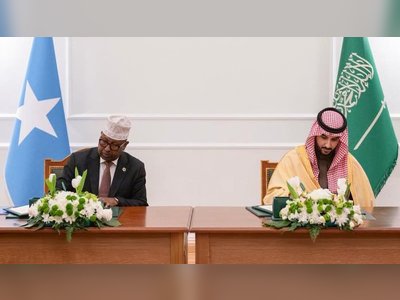
IEF Report: Rapid Expansion of Copper Mining Necessary to Meet Electric Vehicle Targets, Encourage Hybrid Vehicles and Responsible Mining
A new study by the International Energy Forum (IEF) warns that the world needs to mine and produce more than double the amount of copper ever excavated in human history to meet electric vehicle (EV) targets set by the UN's Intergovernmental Panel on Climate Change by 2025.
The report states that the expansion of the copper mining industry is necessary to electrify the global vehicle fleet, which would require opening 55 percent more new copper mines by 2035.
The IEF also predicts that copper demand between 2018 and 2050 will be 115 percent greater than all of the metal that has ever been excavated before.
Due to the widespread use of copper across the economy, the report suggests that policy makers consider promoting hybrid vehicles instead of solely focusing on 100 percent electric vehicles to help reduce the automotive industry's dominance of this resource.
Joseph McMonigle, secretary general of the International Energy Forum, stated that current copper mining policies are insufficient to produce enough new mines for a 100 percent electric vehicle (EV) adoption by 2035.
He emphasized the importance of prioritizing economy-wide electrification as the foundation of climate policy and incentivizing and supporting new copper mine projects to make the best use of available copper supply.
McMonigle also noted that while the EV industry will continue to grow, achieving 100 percent adoption by 2035 is an unrealistic target.
The report suggests that the adoption of electric vehicles (EVs) is an effective way to reduce reliance on fossil fuels, but the increased demand for copper in EV batteries could pose a challenge for countries in early stages of development.
While an EV requires 60 kg of copper compared to 24 kg for a traditional internal combustion engine vehicle, hybrid electric vehicles only require 29 kg.
The report concludes that the negligible increase in copper demand for hybrid vehicles makes them a more sustainable option for reducing copper demand and promoting development in less advanced areas.
The International Energy Forum (IEF) suggests policymakers consider shifting the vehicle electrification goal from 100% electric vehicles (EVs) to 100% hybrid manufacture by 2035.
This change would enable the use of copper, which is in high demand for electrification, in developing countries.
Hybrid vehicles, according to the US Department of Energy, run on both an internal combustion engine and electric motors, with the battery charged through regenerative braking and the engine.
The American Council for an Energy-Efficient Economy's report, cited by IEF, shows that EVs and hybrids have comparable costs to human health from various factors, including manufacturing, fuel or electricity production, and tailpipe emissions.
The International Energy Forum (IEF) emphasized the need for responsible copper mining strategies due to increasing demand and supply concerns.
The IEF's report projects a 82% increase in copper supply by 2050, but also mentions a potential decline as soon as 2026 based on current project pipelines.
The industry faces challenges such as limited land access, low discovery rates, and a long lead time for mines to come into production.
To address these issues, the IEF encourages governments to recognize mining as essential and encourage responsible exploration and development.
The International Energy Forum (IEF) emphasized that governments are reluctant to approve mine permits for significant copper reserves due to environmental concerns.
The mining industry must explore deeper and consider safer subsurface mining to obtain the required copper.
IEF stressed the need to address the challenge of meeting the world's copper demands while minimizing environmental impact.
In April, the International Energy Agency (IEA) reported that global battery production needs to increase to meet climate and energy security goals set at the 2023 UN Climate Change Conference.
At the COP28 summit, over 200 countries reached an agreement to increase renewable energy capacity threefold by 2030, accelerate energy efficiency improvements by 50%, and phase out fossil fuels.
The International Energy Agency (IEA) report emphasized the importance of energy security and diversifying supply chains, particularly in the extraction and processing of critical minerals essential for batteries.
The IEF also predicts that copper demand between 2018 and 2050 will be 115 percent greater than all of the metal that has ever been excavated before.
Due to the widespread use of copper across the economy, the report suggests that policy makers consider promoting hybrid vehicles instead of solely focusing on 100 percent electric vehicles to help reduce the automotive industry's dominance of this resource.
Joseph McMonigle, secretary general of the International Energy Forum, stated that current copper mining policies are insufficient to produce enough new mines for a 100 percent electric vehicle (EV) adoption by 2035.
He emphasized the importance of prioritizing economy-wide electrification as the foundation of climate policy and incentivizing and supporting new copper mine projects to make the best use of available copper supply.
McMonigle also noted that while the EV industry will continue to grow, achieving 100 percent adoption by 2035 is an unrealistic target.
The report suggests that the adoption of electric vehicles (EVs) is an effective way to reduce reliance on fossil fuels, but the increased demand for copper in EV batteries could pose a challenge for countries in early stages of development.
While an EV requires 60 kg of copper compared to 24 kg for a traditional internal combustion engine vehicle, hybrid electric vehicles only require 29 kg.
The report concludes that the negligible increase in copper demand for hybrid vehicles makes them a more sustainable option for reducing copper demand and promoting development in less advanced areas.
The International Energy Forum (IEF) suggests policymakers consider shifting the vehicle electrification goal from 100% electric vehicles (EVs) to 100% hybrid manufacture by 2035.
This change would enable the use of copper, which is in high demand for electrification, in developing countries.
Hybrid vehicles, according to the US Department of Energy, run on both an internal combustion engine and electric motors, with the battery charged through regenerative braking and the engine.
The American Council for an Energy-Efficient Economy's report, cited by IEF, shows that EVs and hybrids have comparable costs to human health from various factors, including manufacturing, fuel or electricity production, and tailpipe emissions.
The International Energy Forum (IEF) emphasized the need for responsible copper mining strategies due to increasing demand and supply concerns.
The IEF's report projects a 82% increase in copper supply by 2050, but also mentions a potential decline as soon as 2026 based on current project pipelines.
The industry faces challenges such as limited land access, low discovery rates, and a long lead time for mines to come into production.
To address these issues, the IEF encourages governments to recognize mining as essential and encourage responsible exploration and development.
The International Energy Forum (IEF) emphasized that governments are reluctant to approve mine permits for significant copper reserves due to environmental concerns.
The mining industry must explore deeper and consider safer subsurface mining to obtain the required copper.
IEF stressed the need to address the challenge of meeting the world's copper demands while minimizing environmental impact.
In April, the International Energy Agency (IEA) reported that global battery production needs to increase to meet climate and energy security goals set at the 2023 UN Climate Change Conference.
At the COP28 summit, over 200 countries reached an agreement to increase renewable energy capacity threefold by 2030, accelerate energy efficiency improvements by 50%, and phase out fossil fuels.
The International Energy Agency (IEA) report emphasized the importance of energy security and diversifying supply chains, particularly in the extraction and processing of critical minerals essential for batteries.
Translation:
Translated by AI











